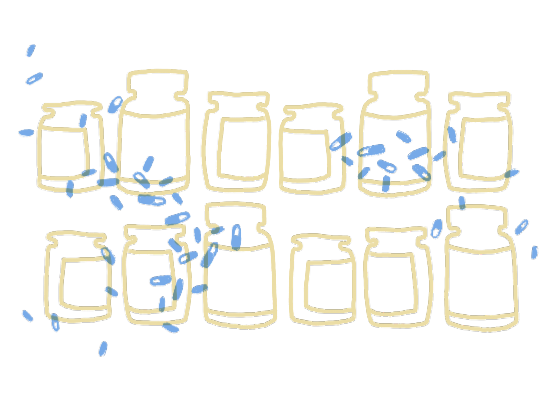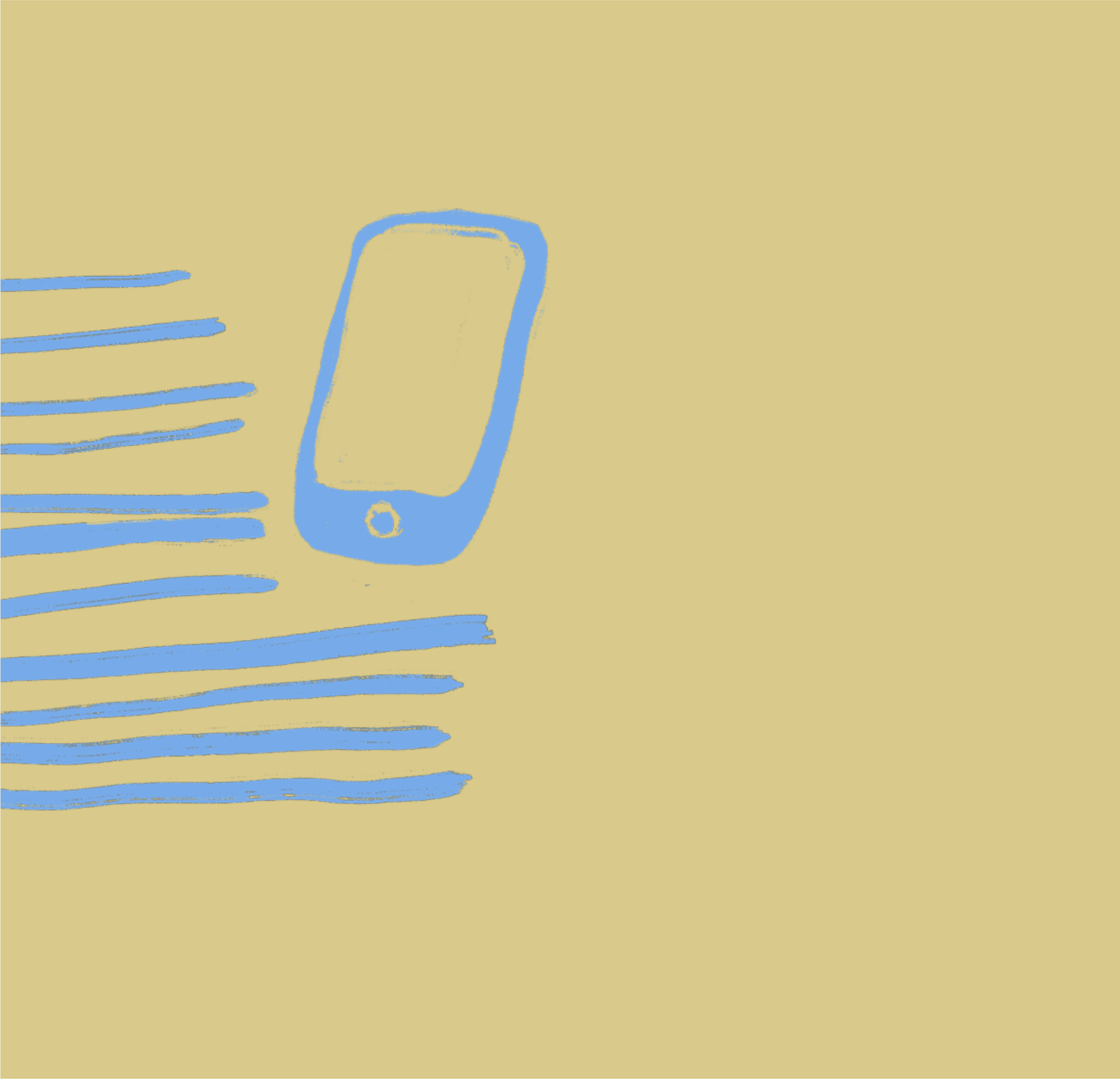Medical treatment options
Here we share some information about potential drugs that may lower sexual impulses. It is very important to understand that this cannot replace the personal consultation and pre-medication diagnosis done by a trained professional, i.e. a psychiatrist. Taking any medication requires regular contact with a clinician.
In general, there are two types of eligible medication classes. Antiandrogens (GnRH-analogues and androgen receptor antagonists) are a more specific medication for the reduction of sexual impulses; they hamper the effect of Testosterone, the male sexual hormone in the body. Selective serotonin reuptake inhibitors (SSRI) are a less specific medication, but may have the effect of diminishing sexual urges.
Antiandrogens
Antiandrogens are typically prescribed for the treatment of prostate cancer, which is often Testosterone-dependent. Another specific effect is the reduction of sexual impulses, especially to deter problematic sexual behavior. The drugs influence the effect of testosterone in the body either by interrupting its production or blocking the receptors. We will provide some detailed information about the regulation and effect of testosterone below.
Selective serotonin reuptake inhibitors (SSRIs)
SSRIs (also known as antidepressants) are a more or less unspecific drug for the reduction of sexual impulses. They are used in the treatment of depression but a decrease of sexual urges is a known side effect. In this case what is typically regarded as a side effect becomes the therapeutic effect, although you may benefit from a better mood as well!
The same medication can have different effects and side effects depending on the individual. Physical exercise, especially endurance sports and outdoor exercise, can influence the (side) effects of medication on an individual.
There are a lot of advantages (pros) and disadvantages (cons) of taking medication. The same effect can be considered as a pro for one person and as a con for another.
Possible advantages (pros):
- Stress reduction
- Diminished pornography consumption
- Reduced masturbation
- Increased sexual calmness in contact situations with children
- Feeling released or liberated
- Sexuality experienced with less urgency
- More confidence and security to abstain from offending
- Fewer sexual fantasies
Possible disadvantages (cons):
- Reduced masturbation
- Decreased erectile function
- Fewer orgasms
- Reduced interest in sex (g. with partner)
- Life is boring/unexciting without sexuality
- Unpleasant side effects of medication (e.g. breast enlargement (gynecomastia), tiredness, weight gain)
How is the testosterone balance regulated in men?
The hypothalamus is a small part of the brain that constantly monitors the level of testosterone concentration in the blood. If the level is too low, the hypothalamus sends a message to the pituitary gland by use of a messenger (luteinizing hormone-releasing hormone, or LHRH), to tell the body that testosterone should be produced. The pituitary instructs the testicles to produce testosterone by use of another messenger (luteinizing hormone, or LH). Furthermore, the adrenal glands are induced to produce androgens by use of a third messenger (adrenocorticotropic hormone, or ACTH). Androgens and testosterone are then converted into dihydrotestosterone (DHT) in the body. The adrenal glands contribute only slightly to the overall production of dihydrotestosterone.
If the testosterone level exceeds a certain point, the messengers that induce production of testosterone in the testicles and the adrenal glands decline – what is called negative feedback.
Testosterone plays a key role in the development of male reproductive tissues such as the testicles and prostate, as well as promoting secondary sexual characteristics, such as increased muscle tissue, bone mass and the growth of body hair.
Testosterone is responsible for the maintenance of sexual desires and urges.
Various body cells possess testosterone receptors, such as the brain, hair roots, fat cells, neural cells and cells in the testicles and prostate. Antiandrogens affect the precise area of the brain responsible for the reduction of sexual impulses by decreasing the level of testosterone in the blood or by blocking the receptors, thereby reducing the effectiveness of testosterone. There is a large body of research and experience with antiandrogens, and it is the medical treatment option with the greatest compatibility.
Experiences of men who chose to receive medication:
“I didn’t know that I could think of anything else, other than children in my fantasies… I am surprised by all the interesting activities I have discovered since I’m on medication.“
„I was feeling like I was up to my neck in it and always had to stand on my tiptoes to keep my nose above the water. Since I’m on medication I am absolutely relaxed and able to see what else is going on because I’m not constantly busy trying not to drown. Life has even started to appear relaxing.”
„Before beginning pharmacological treatment, I was constantly engaged in nothing else, other than children. It was all about boys. I couldn’t concentrate on anything else. On TV I was only looking for series with little boys and spent whole nights searching for pictures of boys, stored them and archived them. I had to masturbate up to 5 or 6 times a day. It took longer to come to an orgasm every time I masturbated. I spent hours on masturbating up to the point of exhaustion. I didn’t go to work nor did I do anything meaningful but nevertheless I was totally engrossed and exhausted. Since beginning medication, for the first time in my life I’m having a clear mind. I suddenly discovered new interests apart from boys… I’m feeling like being relieved from a huge burden. I only masturbate once or twice a day and in doing so I can also really relax.… On the other hand it doesn’t work that good with the medication : you hardly get an erection, which is also not so stiff and it takes longer to reach orgasm and with time there’s less and less sperm. But you’re not so often in the mood to do it and that’s worth it to me.”
„I have the feeling that I am much more vulnerable, since beginning medication. Before I was living in a suit of armor, inside a tank, always trying to hide myself and my feelings. This need is gone now. Even if I don’t tell anybody how I think and feel, I have become much more open and not so anxious that somebody could discover me, that one could see who I really am. I’m also calmer and more relaxed in front of other adults, because I don’t have the feeling anymore that I have to hide something. It’s there, but it doesn’t disturb me that much anymore. I even look at chance encounters with boys from a more distant point of view.… At the same time you have to be careful that you don’t rely too much on the medication and that you don’t shift your own responsibility onto them… Well, that’s just about the limit, when you masturbate several times daily before and now, suddenly, just once a week and it is far from the same experience. But I would always take the medication again, because you just have some peace and quiet. I scrapped my entire collection of pictures, because collecting made me feel silly since I took the medication. I couldn’t understand why I had saved 4,000 pictures, which meant nothing to me anymore.”


